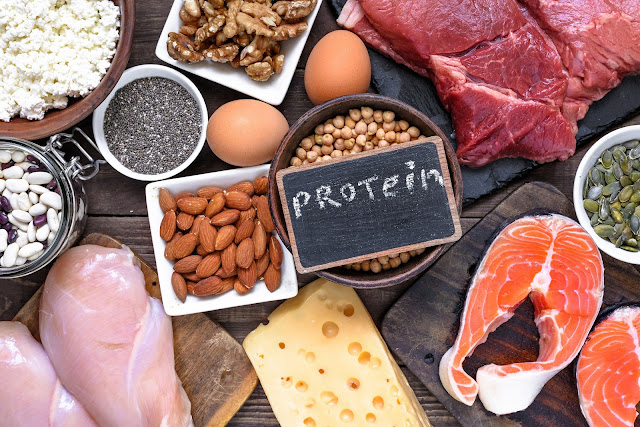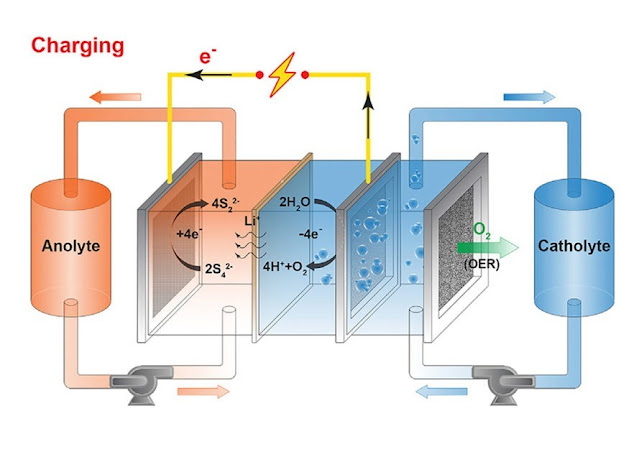Functional Protein Market Will Grow At Highest Pace Owing To Rising Consumer Health Consciousness
 |
| Functional Protein Market |
The
functional protein market comprises various protein supplements extracted from
whey, casein, plant-based sources, and egg. These proteins are easily
digestible and contain essential amino acids that help build muscle mass and
improve overall health. With shifting preferences toward nutritional foods, the
demand for functional proteins is increasing among health-conscious consumers.
Sportspersons and gym-goers actively consume whey and casein protein supplements
to gain muscles. Furthermore, plant-based proteins are gaining traction among
vegans and flexitarians due to their environmental sustainability.
The Global
Functional Protein Market Size is estimated to be valued at US$ 5.6 Bn in 2024 and is expected to
exhibit a CAGR of 5.6% over the
forecast period 2024 to 2031.
Key Takeaways
Key players operating in the functional protein market are ADM, Cargill, Ingredion,
Arla Foods, Roquette, BASF, Glanbia, Fonterra, DSM, FrieslandCampina, Essentia
Protein Solutions, Amai Proteins, Mycorena, Merit Functional Foods, Plantible
Foods, BENEO, ProtiFarm, and Omega Protein. These players are focusing on new
product launches, acquisitions, and expansion strategies to strengthen their
market position.
The growing health consciousness and shift toward preventive healthcare have
boosted the demand for functional protein supplements in recent years. Sports
nutrition and weight management are the prime areas driving major growth.
Furthermore, the growing elderly population prone to chronic diseases and
disabilities is also creating opportunities.
Technological advances have enabled manufacturers to develop protein isolates,
concentrates, and hydrolysates from various sources like pea, soy, and wheat.
These innovations aid in improving the functional benefits, taste, texture, and
ease of digestion of plant-based proteins. Novel extraction techniques produce
highly purified proteins having low allergenicity.
Market Trends
Plant-based proteins are gaining huge popularity due to rising veganism and
flexitarianism. Products containing pea, soy, wheat, and rice proteins are in
high demand from health-conscious consumers.
Protein fortification of various food products like snacks, beverages, bakery,
and dairy categories is trending. Functional proteins help enhance the
nutritional value of end products. Sports and clinical nutritional products
specific for muscle gain, weight loss, gut health are attracting consumers.
Market Opportunities
Personalization of functional protein supplements as per individual health
goals, like muscle gain, fat loss, diabetes, cardiac care etc. offers immense
scope.
Technological advancement in protein extraction processes may lead to
large-scale production of novel plant-based proteins like potato, chickpea at
lower costs. This will increase accessibility to developing regions.
Impact of COVID-19 on Functional Protein
Market
The functional protein market has witnessed fluctuating growth rates due to the
COVID-19 pandemic. In the initial stages of the pandemic in 2020, lockdowns and
supply chain disruptions negatively impacted the market. Demand from food and
beverage sector decreased significantly as production and sales were halted.
There was limited availability of functional proteins due to workforce
shortages at manufacturing facilities. However, as restrictions eased in late
2020, demand started recovering backed by rising health consciousness among
consumers. The pandemic highlighted the importance of consuming a balanced diet
with sufficient protein intake to boost immunity. This raised awareness about
protein-rich foods and beverages fortified with functional proteins.
In the post-COVID era, growth is expected to be driven by rising focus on
preventive healthcare and wellness. Many consumers are expected to continue
incorporating protein-rich diets in their lifestyles to improve long-term
health outcomes. This will augment the demand for functional protein
ingredients across various end use sectors like nutrition, dietary supplements,
sports nutrition and functional foods. Product innovation has also gained
traction as protein ingredient manufacturers strive to develop novel
formulations catering to evolving consumer needs and tastes. New product
launches in the areas of plant-based proteins, collagen peptides, protein
powders and bars are expected to further bolster market expansion in the
forecast period. However, high prices of some functional proteins may restrict
mass market uptake to some extent.
Europe currently holds the largest value share of the functional protein
market. This is attributed to growing awareness about balanced nutrition and
higher per capita income allowing for premium functional foods.
Protein-fortified bakery, dairy and meat alternative products have gained
widespread popularity in countries like Germany, UK, France and Italy. Asia
Pacific is expected to be the fastest growing regional market, driven by rapid
urbanization, rising middle class, increasing health consciousness and sizeable
vegetarian populations in countries like India, China, Japan and Southeast
Asian nations seeking plant-based protein options. Latin America and Middle
East & Africa also present lucrative prospects for marketers owing to
improving economic conditions and changing food consumption trends.
The functional protein market remains concentrated in North America, led by the
United States. This is because of the large health supplement industry in the
country as well as prevalence of protein-rich diets and lifestyles among
Americans. Also, North America houses many innovation-driven manufacturers that
invest heavily in research and product development. With growing exports, the
US market increasingly dominates global functional protein demand and supply.
However, Asia Pacific is gaining ground and is expected to outpace North
America in terms of growth rates owing to its bigger population base and
rapidly evolving food habits.
Get more insights on This Topic- Functional
Proteins Market



Comments
Post a Comment